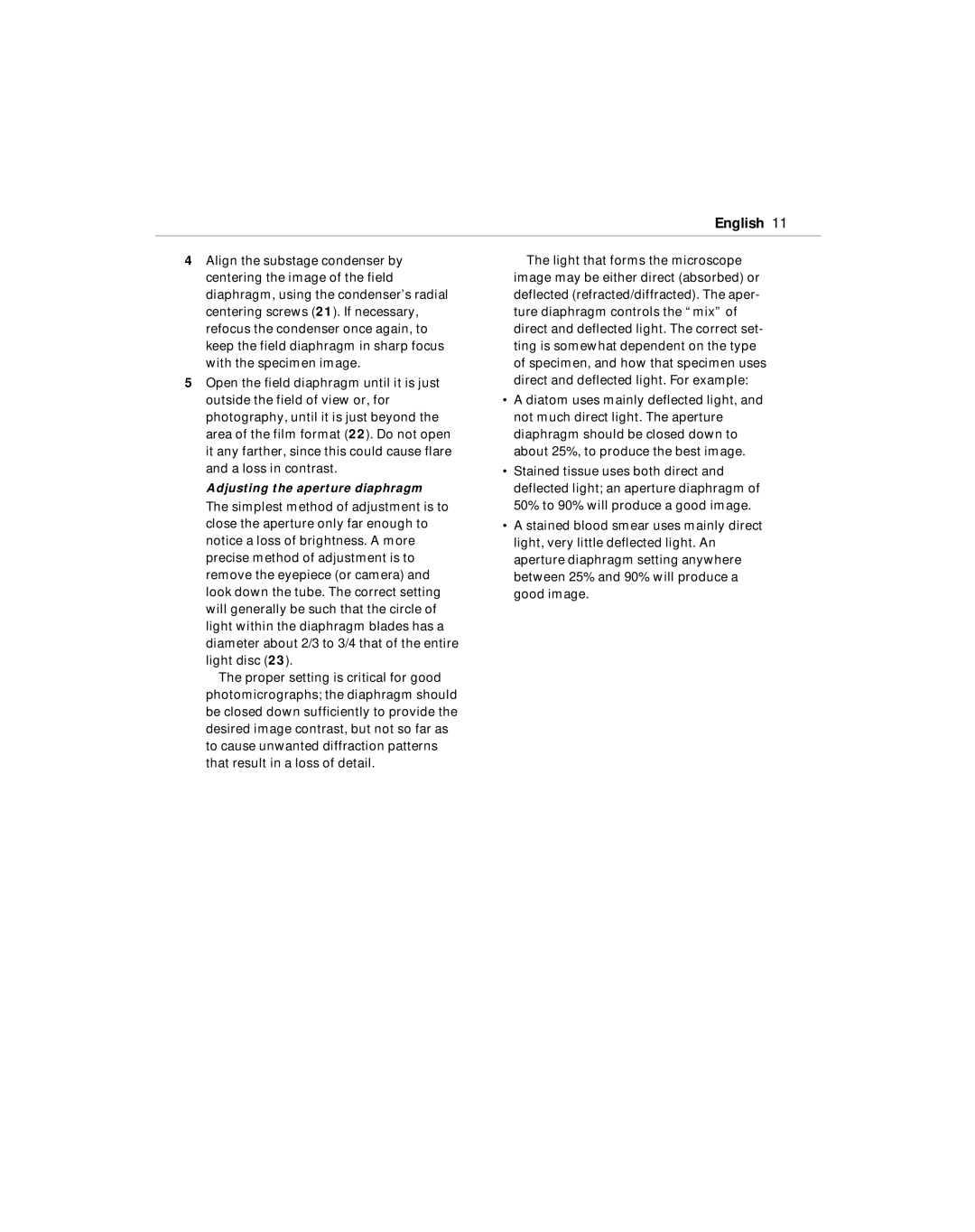English 11
4Align the substage condenser by centering the image of the field diaphragm, using the condenser's radial centering screws (21). If necessary, refocus the condenser once again, to keep the field diaphragm in sharp focus with the specimen image.
5Open the field diaphragm until it is just outside the field of view or, for photography, until it is just beyond the area of the film format (22). Do not open it any farther, since this could cause flare and a loss in contrast.
Adjusting the aperture diaphragm The simplest method of adjustment is to close the aperture only far enough to notice a loss of brightness. A more precise method of adjustment is to remove the eyepiece (or camera) and look down the tube. The correct setting will generally be such that the circle of light within the diaphragm blades has a diameter about 2/3 to 3/4 that of the entire light disc (23).
The proper setting is critical for good photomicrographs; the diaphragm should be closed down sufficiently to provide the desired image contrast, but not so far as to cause unwanted diffraction patterns that result in a loss of detail.
The light that forms the microscope image may be either direct (absorbed) or deflected (refracted/diffracted). The aper- ture diaphragm controls the “mix” of direct and deflected light. The correct set- ting is somewhat dependent on the type of specimen, and how that specimen uses direct and deflected light. For example:
•A diatom uses mainly deflected light, and not much direct light. The aperture diaphragm should be closed down to about 25%, to produce the best image.
•Stained tissue uses both direct and deflected light; an aperture diaphragm of 50% to 90% will produce a good image.
•A stained blood smear uses mainly direct light, very little deflected light. An aperture diaphragm setting anywhere between 25% and 90% will produce a good image.
